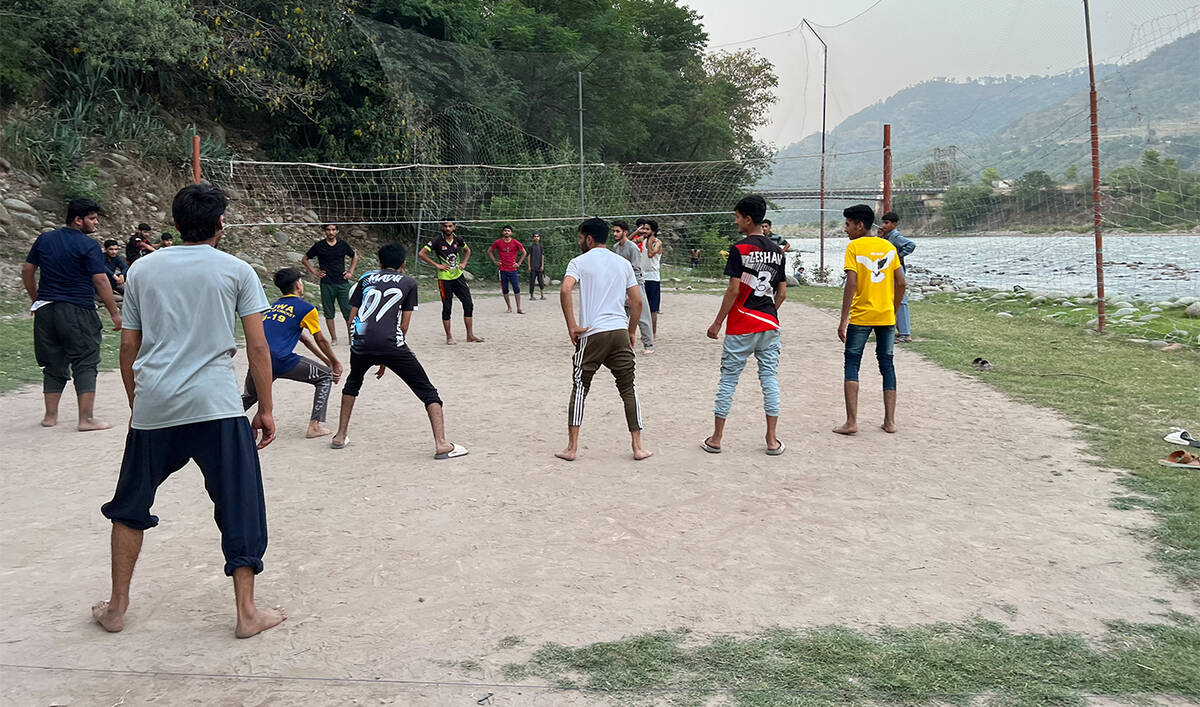ISLAMABAD: Pakistan military spokesperson Lt. Gen. Ahmed Sharif Chaudhry said on Wednesday Pakistan had shot down five Indian fighter jets after New Delhi launched overnight strikes in which 26 civilians were killed.
In the sharpest military escalation in more than two decades between the nuclear-armed rivals, the Indian government said it struck nine Pakistani “terrorist infrastructure” sites where a deadly attack in Indian-administered Kashmir on April 22 had been planned. The attack took place on the tourist hill station of Pahalgam in the part of Kashmir governed by India, with 26 men killed.
The Pakistani military said six locations across its territory — Ahmedpur East, Muridke, Sialkot, Shakargarh in the eastern province of Punjab and Kotli and Muzaffarabad in Azad Kashmir — were targeted. Azad Kashmir is a part of the disputed Kashmir valley that is administered by Pakistan.
In televised remarks on Wednesday morning, Chaudhry said Indian aircraft had fired from Indian airspace using long-range weapons.
“Five planes and one combat drone, which had attacked Pakistan were shot down,” he said, naming three Rafales and an MiG-29 and Su-57 each and a combat drone.

An army soldier stands guard on the rooftop of a mosque building damaged by a suspected Indian missile attack near Muzaffarabad. (AP)
He added that the engagements were done as “self defense” after the Indian aircraft attacked Pakistani territory and killed civilians, including women, children and the elderly.
Four local government sources in Indian-administered Kashmir told Reuters three fighter jets had crashed in separate areas of the Himalayan region during the night. Indian defense ministry officials have not officially confirmed the report.
Pakistan’s foreign ministry said the Chargé d’Affaires had been summoned “to receive Pakistan’s strong protest over the unprovoked Indian strikes.”
“It was conveyed that India’s blatant act of aggression constitutes a clear violation of Pakistan’s sovereignty. Such actions are in contravention of the UN Charter, international law, and established norms governing inter-state relations. Pakistan firmly rejected India’s baseless justifications for its hostile conduct,” the foreign ministry said in a statement.
“The Indian side was warned that such reckless behavior poses a serious threat to regional peace and stability.”
INDIAN MEDIA BRIEFING
In New Delhi, two Indian military spokespersons told a briefing Indian forces had attacked facilities linked to militant groups Jaish-e-Mohammed and Lashkar-e-Taiba. Pakistani officials say India only hit civilian infrastructure.
The strikes targeted “terrorist camps” that served as recruitment centers, launchpads, and indoctrination centers, and housed weapons and training facilities, the Indian spokespersons said.

Smoke rises in the main town of Poonch district on May 7, 2025. (AFP)
They said Indian forces used niche technology weapons and carefully chose warheads to avoid collateral damage to civilians and civilian infrastructure, but did not elaborate on the specifics or methods used in the strikes.
“Intelligence and monitoring of Pakistan-based terror modules showed that further attacks against India were impending, therefore, it was necessary to take pre-emptive and precautionary strikes,” Indian Foreign Secretary Vikram Misri, the top official in its external affairs ministry, told the briefing.
The joint briefing by the Indian military and foreign ministry listed past attacks in India blamed on Pakistan, with Misri saying Pakistan had not done anything to “terrorist infrastructure” after the Pahalgam attack, which triggered the latest standoff.
Pakistan had denied involvement in the attack and Prime Minister Shehbaz Sharif had offered to be part of any credible and transparent investigation.
Kashmir has been disputed between India and Pakistan since 1947. Both rule it in part and claim it in full, and have fought two of their three wars over the Himalayan region. India accuses Pakistan of arming and training militants involved in a separatist insurgency in its part of Kashmir since 1989, which Islamabad denies, saying it offers only moral and diplomatic support to the Kashmiri people in their struggle for self-determination.
The current confrontation is reminiscent of the last major military standoff between the two nations in 2019, when an Indian airstrike in the northwestern town of Balakot was followed by Pakistani retaliatory action, including the downing of an Indian fighter jet and the capture of its pilot, who was later released in a gesture of goodwill.
On Wednesday morning, the South Asian neighbors also exchanged intense shelling and heavy gunfire across much of their de facto border called the Line of Control, which divides disputed Kashmir between them.
The shelling across the frontier in Kashmir killed 10 civilians and injured 48 in the Indian part of the region, police there told media. At least six people were killed on the Pakistani side, Reuters reported, quoting officials.
– With inputs from Reuters



















